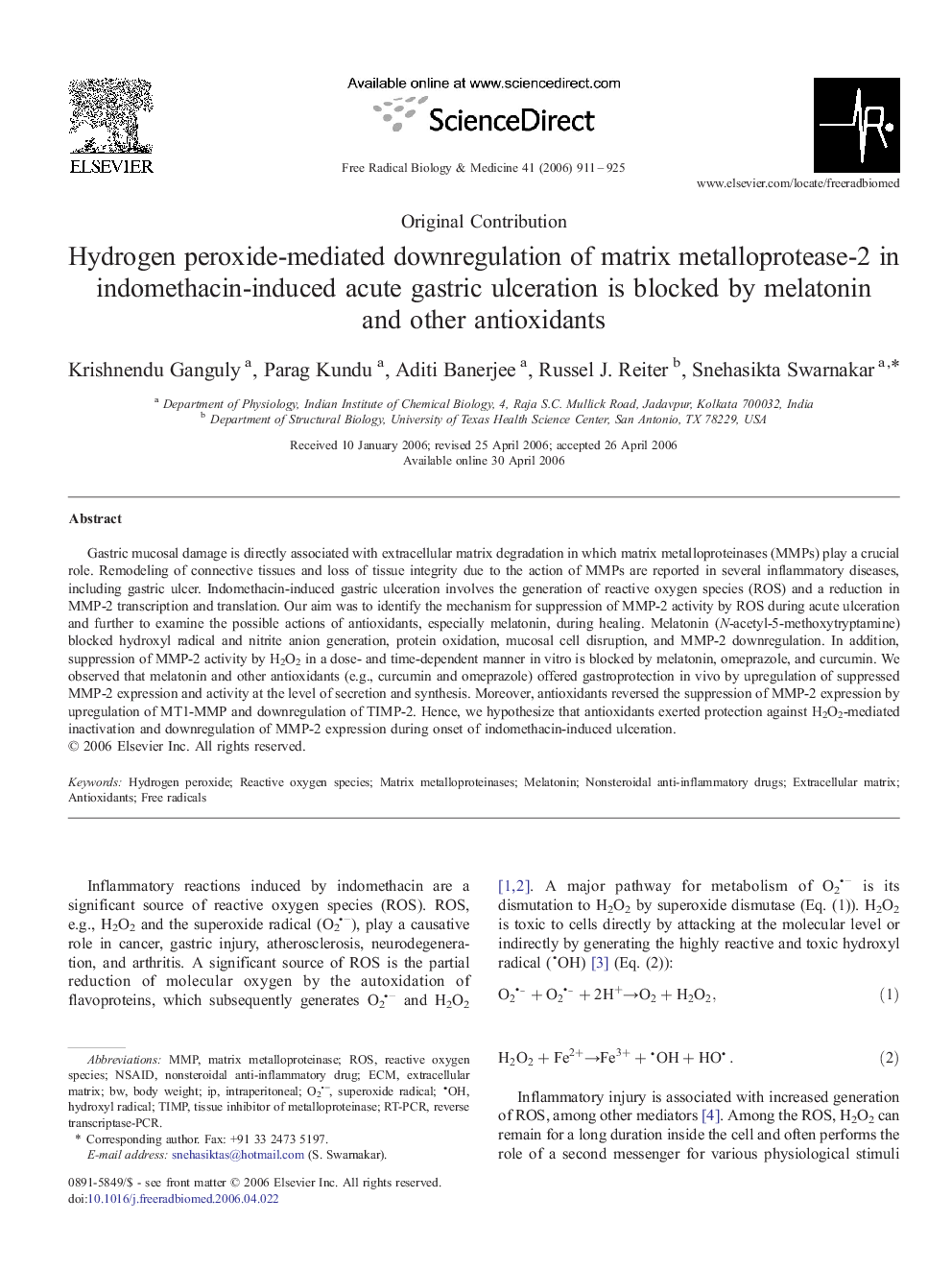| Article ID | Journal | Published Year | Pages | File Type |
|---|---|---|---|---|
| 1911249 | Free Radical Biology and Medicine | 2006 | 15 Pages |
Gastric mucosal damage is directly associated with extracellular matrix degradation in which matrix metalloproteinases (MMPs) play a crucial role. Remodeling of connective tissues and loss of tissue integrity due to the action of MMPs are reported in several inflammatory diseases, including gastric ulcer. Indomethacin-induced gastric ulceration involves the generation of reactive oxygen species (ROS) and a reduction in MMP-2 transcription and translation. Our aim was to identify the mechanism for suppression of MMP-2 activity by ROS during acute ulceration and further to examine the possible actions of antioxidants, especially melatonin, during healing. Melatonin (N-acetyl-5-methoxytryptamine) blocked hydroxyl radical and nitrite anion generation, protein oxidation, mucosal cell disruption, and MMP-2 downregulation. In addition, suppression of MMP-2 activity by H2O2 in a dose- and time-dependent manner in vitro is blocked by melatonin, omeprazole, and curcumin. We observed that melatonin and other antioxidants (e.g., curcumin and omeprazole) offered gastroprotection in vivo by upregulation of suppressed MMP-2 expression and activity at the level of secretion and synthesis. Moreover, antioxidants reversed the suppression of MMP-2 expression by upregulation of MT1-MMP and downregulation of TIMP-2. Hence, we hypothesize that antioxidants exerted protection against H2O2-mediated inactivation and downregulation of MMP-2 expression during onset of indomethacin-induced ulceration.
